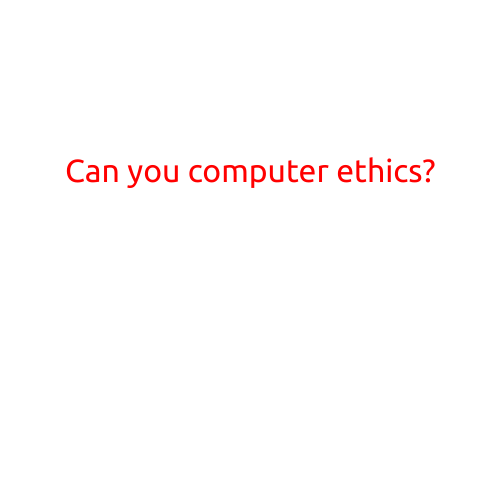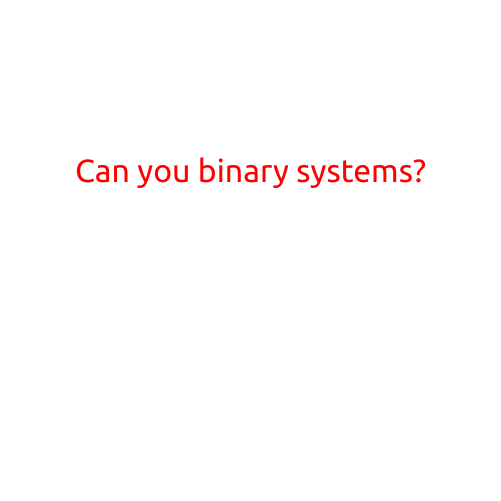
Can You Practise Computer Ethics?
The rapid growth of technology has transformed the way we live, work, and interact with one another. With the advent of the internet, social media, and artificial intelligence, our personal and professional lives are now intertwined with computers and the digital world. However, with this increased reliance on technology comes a need for consideration of ethics in the use and development of computers.
In recent years, there have been numerous stories of data breaches, online harassment, and privacy violations, highlighting the need for computer ethics. Computer ethics, also known as cyberethics or informatics ethics, is the study of the moral principles and guidelines that govern the use of computers and the Internet.
What is Computer Ethics?
Computer ethics encompasses a wide range of questions and concerns related to the impact of technology on society. It involves considering the ethical implications of developing and using new technologies, as well as ensuring that they are used responsibly and in a way that respects the well-being of individuals and society as a whole.
Some of the key issues in computer ethics include:
- Privacy and Data Protection: How can we ensure that our personal data is protected from unauthorized access and use?
- Intellectual Property: How should we balance the rights of creators with the need for access to information and knowledge?
- Online Harassment and Abuse: How can we prevent and address online bullying, harassment, and abuse?
- Free Speech and Online Censorship: How should we balance the need for free speech with the need to protect individuals and groups from online harassment and offensive content?
Why is Computer Ethics Important?
Practicing computer ethics is essential in today’s digital age. Here are a few reasons why:
- Protecting Personal Data: By implementing ethical safeguards, we can protect our personal data from unauthorized access and use.
- Promoting Trust: Practicing computer ethics can help build trust between individuals, organizations, and governments, which is essential for successful online interactions.
- Fostering Responsible Innovation: By considering the ethical implications of new technologies, we can ensure that they are developed and used in a responsible and beneficial way.
- Respecting Human Rights: Computer ethics can help us respect human rights, such as the right to privacy, freedom of speech, and access to information.
How Can You Practise Computer Ethics?
So, how can you practice computer ethics in your daily life? Here are a few tips:
- Be Mindful of Your Online Behavior: Think carefully about your online actions and how they may impact others.
- Protect Your Personal Data: Use strong passwords, enable two-factor authentication, and be cautious when sharing personal information online.
- Respect Online Communities: Follow online community rules and guidelines, and avoid spreading hate speech or offensive content.
- Stay Informed: Stay up-to-date with the latest news and developments in computer ethics, and participate in online discussions and debates about the ethics of technology.
Conclusion
Computer ethics is a critical aspect of our digital lives. By understanding the ethical implications of technology and practicing responsible behavior online, we can help create a safer, more respectful, and more trustworthy online environment. Whether you are a computer user, a developer, or a decision-maker, practicing computer ethics is essential for building a better digital future.





